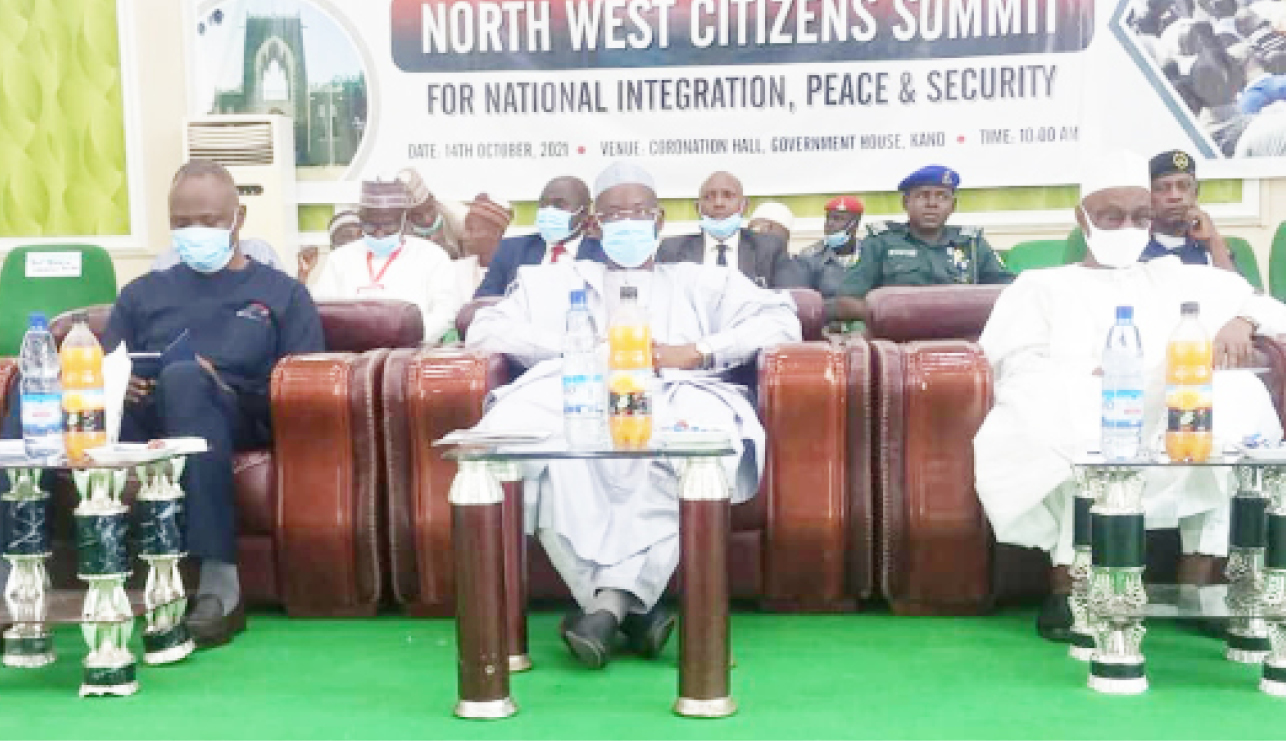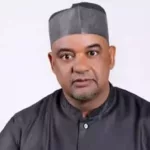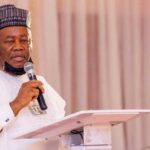With the increasing insecurity in the North-West geopolitical zone of the country threatening the economic and social fibre of the area, citizens have taken up the initiative to find a lasting solution.
The spate of attacks by bandits that has left thousands dead and thousands more homeless, as well as other insecurity challenges elsewhere, threatening the unity of the country, and the need to find a way to augment the effort of the government at different levels, birthed the summit (first of its kind), by citizens in North-West, for national integration, peace and security.
Organised by the Nigeria Institute of Public Relations (NIPR), the summit, which drew stakeholders across the seven states of the North-West geo-political zone to Kano, was part of the Nigeria Peace Project Agenda, with the NIPR as the driver in the push towards rescuing the country from the brinks of tipping into the abyss, occasioned by the current spate of banditry, kidnappings, ethno-religious conflicts, separatist agitations and other forms of security threats of regional and national dimensions.
The lead paper, presented by Professor Bawa Hassan Gusau, a political scientist from Bayero University, Kano (BUK), stressed that national integration and cohesion could only be achieved and peace realised in an environment where citizens perceive a just government for all.
He also advised that traditional rulers across the country should be used as one of the channels to contain and manage the rising spate of security challenges confronting the country.
His paper was discussed by another political scientist, Professor Kamilu Sani Fage of the BUK, as well as an activist and president of Jam’iyyar Matan Arewa, Hajiya Rabi Musa Saulawa, and the chairman Nigeria Labour Congress, Kano State chapter, Comrade Kabiru Ado Minjibir.
Similarly, groups at the summit also made presentations on the issues, including the Yoruba Community, Kano; the Ebira Community, Kano/Jigawa states; the Northern Ethnic Peoples Association (formerly Known as Northern Minority Tribes); All Farmers Association of Nigeria (AFAN); Jigawa Civil Society Forum; representatives of Eze Ndigbo, Kano and the Tiv Community, as well as the Kaduna chapter of the NIPR.
They all observed, among other things, that due to the current national psyche that has been bruised and impaired by fears, mutual suspicion, mistrust, misunderstanding, grievances and hate, Nigeria is grappling with grave threats to its corporate existence as a united, stable and indivisible country.
They also observed that the current spate of criminal acts: banditry, kidnapping, insecurity, regional separatist agitations, ethno-religious and other divisive conflicts that have bedevilled the country were both avoidable and surmountable distractions.
Buttressing the above point, the deputy governor of Jigawa State, Umar Namadi, who represented the governor, Mohammed Badaru, said no matter what government and security agencies did to fix the nagging insecurity issues in the country, citizens must agree and actively participate in the efforts before the issues could be fixed.
This is also as the Kano State governor, Abdullahi Umar Ganduje, said Nigeria had come a long way for anyone to think of breaking away. He urged Nigerians to embrace dialogue, respect and understanding to resolve the nagging indifferences in the country.
“Happenings in countries such as Somalia, Afghanistan and Rwanda are enough examples for us to embrace one another and live as one family. No matter the magnitude of our problems, it is only wise and civil to be resolved through dialogue, respect and understanding,” he said.
Speakers noted that governments’ penchant for distribution of peanut handouts to youths as sort of economic empowerment is not sustainable and most times does the opposite of the empowerment.
“Such resources should be ploughed into industrialisation of the country to create job opportunities for the teeming but idle youths being engaged in banditry, kidnapping and other types of misdemeanours in the length and breadth of the country.
“Nigeria’s stability lies in guaranteeing harmony, mutual respect, peace and security, which government at various levels must make concerted efforts to attain. Now is the best moment and opportunity to reflect upon what pragmatic and bold steps to take to build bridges across the country for peace and harmony, and to pull the country from sleepwalking into the ‘abyss’ or the ‘point of no return,” the communique issued at the end of the summit noted.
As part of its efforts to check the effect of banditry on farming activities in the region, the national president of the AFAN, Farouk Rabiu Mudi, said the association had “planned to organise farmers into small groups to assist, watch, guide and protect colleagues while working in their farms against security threats.
“Government officials would be alerted on seeing such threat for immediate action/intervention,” the communiqué added.
On his part, the coordinator of the summit, Dr Sule Ya’u Sule, said it was imperative because the institute felt it should not fold its arms and allow the country to slide into anarchy.
“No normal person can question why we need peace in this country. Peace is the minimum requirement for progress. When there is peace, people can go about their businesses. Therefore, it is in the best interest of Nigerians to sit down and learn to live in peace with one another. We have no other country than Nigeria,” he said.
Moving forward, the president of the NIPR, Mukhtar Zubairu Sirajo, said the outcome of the zonal summits, which would be across the six zones, would be harmonised to produce a national charter.

 Join Daily Trust WhatsApp Community For Quick Access To News and Happenings Around You.
Join Daily Trust WhatsApp Community For Quick Access To News and Happenings Around You.


